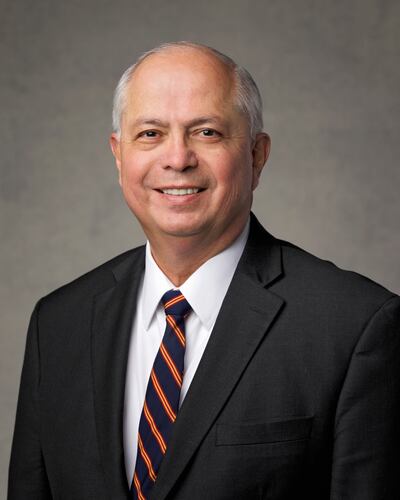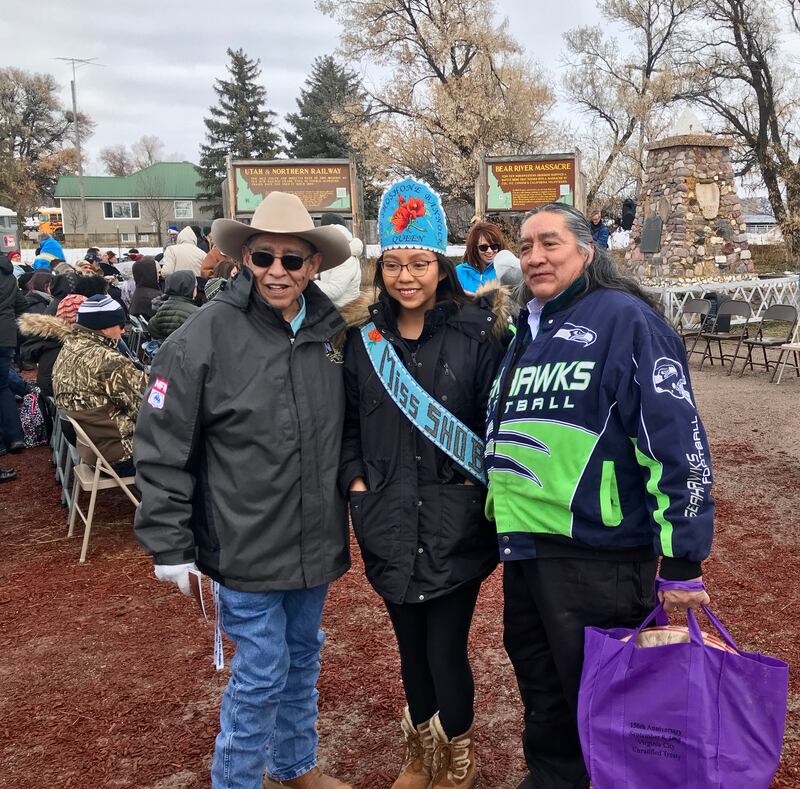PRESTON, Idaho — It’s important to remember the sad days of the past so we can commit to be better in the future.
That was the main focus of Elder Larry J. Echo Hawk’s brief message to as many as 500 people gathered together just off Highway 91 on a cold January morning for a memorial ceremony commemorating the 157th anniversary of the Bear River Massacre Wednesday.
The site is where federal troops led by Col. Patrick Connor attacked and killed between 250 and 500 Shoshone men, women and children on Jan. 29, 1863.

“This is a day of remembrance. It is vitally important that we retain this history ... and create a new history,” he said. “We must never forget the people who died on Jan. 29, 1863. Year after year, we should gather and remember — remember so that we create better chapters of history in the future.”
He currently works as special legal counsel with the Utah Attorney General’s office and was asked to attend Wednesday on behalf of Utah Attorney General Sean Reyes. A member of the Pawnee Nation, Elder Echo Hawk also served as assistant secretary for Indian Affairs for the U.S. Department of the Interior in the Obama administration.
In earlier years, Elder Echo Hawk served as chief legal counsel for the Shoshone and Bannock Indians on the Fort Hall Indian Reservation. As he drove to the memorial Wednesday, he reflected on many previous visits to the Bear River Massacre site. He also thought about traveling to the Wounded Knee massacre site in South Dakota with United State Attorney General Eric Holder, he said.
“It’s fitting to remember those terrible times,” Elder Echo Hawk said. “I’ve seen enormous progress that’s been made among the tribal nations in the United States. It’s wonderful to see that progress, and not just economic progress, it’s also relations. Improvement of tribal-state relations is very critical.”
Darren Parry, chairman of the Northwestern Band of the Shoshone Nation, also spoke at the event. He said some of the greatest crimes in history were caused not by hatred but by indifference.

“I believe that it is now time for good people to stand up and make a difference,” he said.
Parry said fundraising efforts for the forthcoming “Boa Ogoi” Cultural Interpretive Center are going well and they hope to break ground in July. The center is being designed to educate visitors about Shoshone life and honor the victims and survivors of the Bear River Massacre.
Wednesday’s event included musical tributes, a flag and Native American honor song, as well as a proclamation of remembrance by the State of Idaho and a reading of the names ceremony. A number of local and state officials from Utah and Idaho attended the memorial, along with tribal council members and their families, local citizens and children from area schools.


